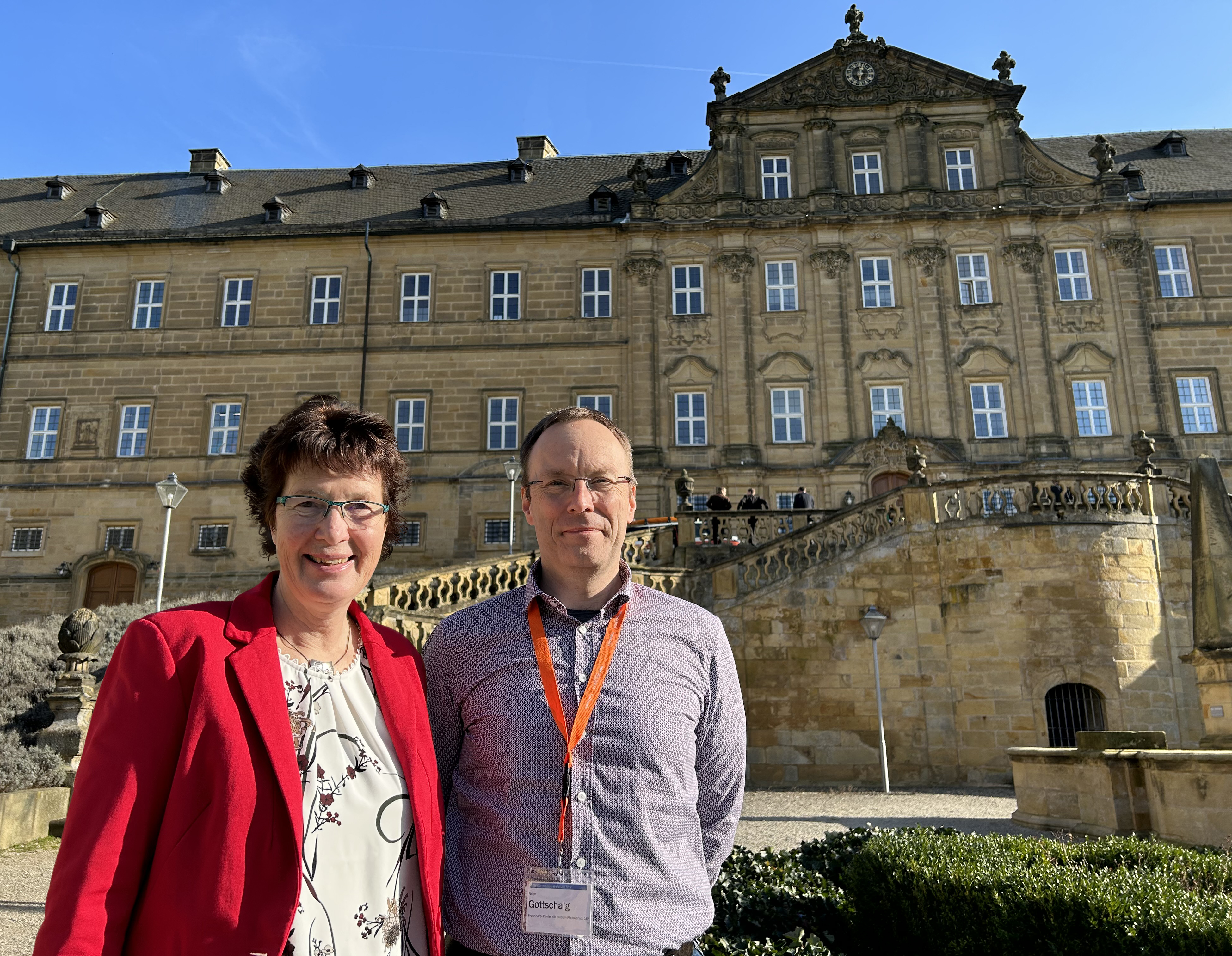Ulrike Jahn becomes Senior Scientist at Fraunhofer CSP
Ulrike Jahn has joined the Fraunhofer Center for Silicon Photovoltaics CSP as a Senior Scientist. This is the first time the research institute in Halle (Saale) has filled such a position. The physicist comes from VDE Renewables and is one of the world's leading experts for quality assurance in photovoltaics.
"Ulrike Jahn will be a tremendous asset to the Fraunhofer CSP. In her more than 30 years in the photovoltaic industry, she has influenced the global solar industry like few other German experts have. With her technical excellence, her outstanding networking within the industry and not least her passion for the further development of photovoltaics, especially with regard to reliability and performance evaluation, she will be an inspiring enhancement to our team," says Prof. Dr. Ralph Gottschalg, Director of Fraunhofer CSP.
A physicist by training, she has been a Senior Expert at VDE Renewables since April 2021. Her previous positions include TÜV Rheinland and the Institute for Solar Energy Research (ISFH) in Hamelin. She has published more than 70 scientific papers since 1992. She has established Task 13 "Reliability and Performance of Photovoltaic Systems" in the Photovoltaic Power Systems Programme of the International Energy Agency, which she has headed since 2010, as the world's leading forum for quality assurance in photovoltaics by providing important impetus in areas such as standardization, operational analysis and risk minimization. Ulrike Jahn is a member of the steering committee of the European Technology & Innovation Platform ETIP PV and was honored with the European Commission's Becquerel Prize in 2021.
"I am very much looking forward to my new role at the Fraunhofer CSP and the opportunity to use my expertise to support the research needs of industry in a targeted manner and, together with my new colleagues in the 'PV Systems and Integration' group, to drive forward viable solutions for the energy transition at a regional level," says Ulrike Jahn.
Interview with Ulrike Jahn
What brought you to the Fraunhofer CSP?
I have known the Fraunhofer CSP for many years and have always perceived it as a very dynamic, highly innovative and competent research institution with a clear focus on the needs of industry, particularly in the areas of reliability and quality assurance of photovoltaic components and systems. That suits me and my areas of focus.
In your opinion, what are the most important challenges for photovoltaics in Germany?
Photovoltaics is becoming more important overall as a result of the energy transition. However, this also brings with it a number of currently unresolved problems. The expansion targets are straining current grid capacities. Therefore, in addition to grid expansion, the complex requirements for intelligent control of the electricity grid and for sector coupling as a whole must be addressed more clearly and quickly. At the same time, the pace of expansion must not be at the expense of quality. I see the current difficult economic conditions for the German PV industry - from production and planning to installation - as a further challenge, which is also exacerbated by the tendency to outbid competition for subsidies worldwide. Added to this is the shortage of skilled workers at several points along the PV value chain.
What would you like to contribute to overcoming these challenges at the CSP?
With my many years of experience in the industry and my international network, I can firstly contribute a holistic view, from product quality requirements to the evaluation of PV systems, for example with regard to the expected yields in different climate zones or to solutions for integration into the power grid. Secondly, my specialist focus on quality assurance topics fits in perfectly with the profile of the Fraunhofer CSP and the current needs of the industry. In Germany, we can only achieve the expansion targets necessary for climate neutrality and the corresponding share of PV in the electricity mix if we keep an eye on and continuously improve the reliability and service life of the modules and components in addition to the costs for modules, installation and operation of systems and the efficiency. Efficient methods of materials research and innovative tests in the laboratory/field are just as important for this as cooperation in committees and continuous exchange with industry and politics, for example to define standards and create suitable regulatory framework conditions.
What will be your first tasks and projects in your new job?
First of all, of course, it will be about getting to know the new framework conditions, requirements and colleagues in the "PV Systems and Integration" group. My role as Senior Scientist is also new to the institute, so that also needs to settle in first. However, I want to become active as quickly as possible and believe that I can quickly support and advance current and new projects, such as quality assurance along the entire value chain and the digitalization of fault identification, with my expertise. My experience in improving system quality, which I have gained over 30 years in the industry, will be put to very good use here. I would also like to play an early role in committees such as the Solar Cluster East Germany, which is currently being established.
What are you looking forward to most about working in Halle?
New impressions are always exciting, and I am also looking forward to working within a large research organization like Fraunhofer. What I am particularly looking forward to is the competent team and the regional anchoring of the Fraunhofer CSP. Photovoltaics has a very high status and a high level of acceptance in Central Germany, and at the same time it can make an important contribution to structural change in the industry. Working on viable solutions that have a direct local impact and thus support the regional energy transition is what particularly appeals to me about my new role.
 Fraunhofer Center for Silicon Photovoltaics CSP
Fraunhofer Center for Silicon Photovoltaics CSP